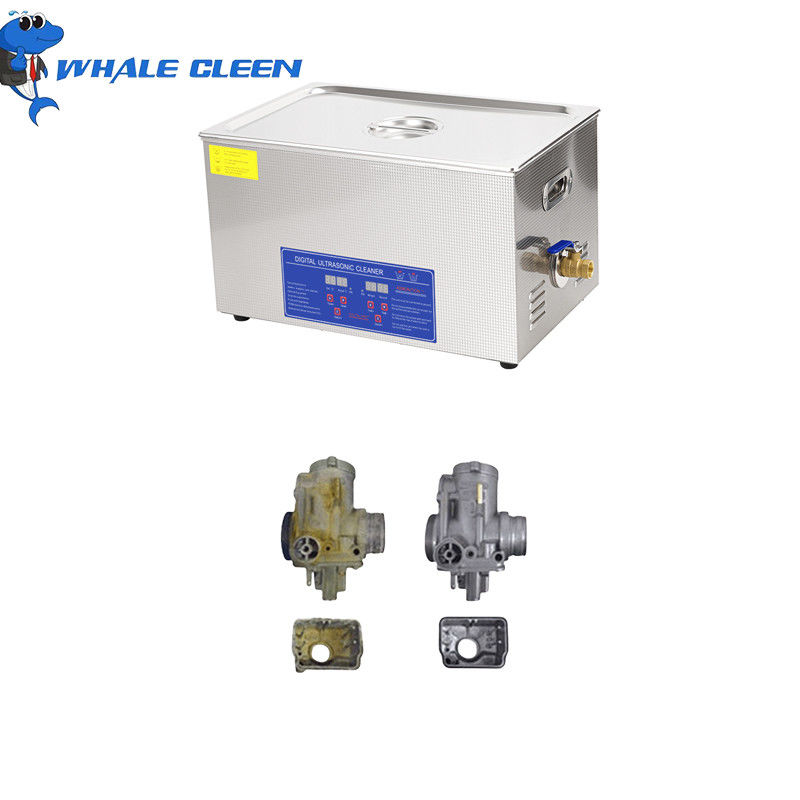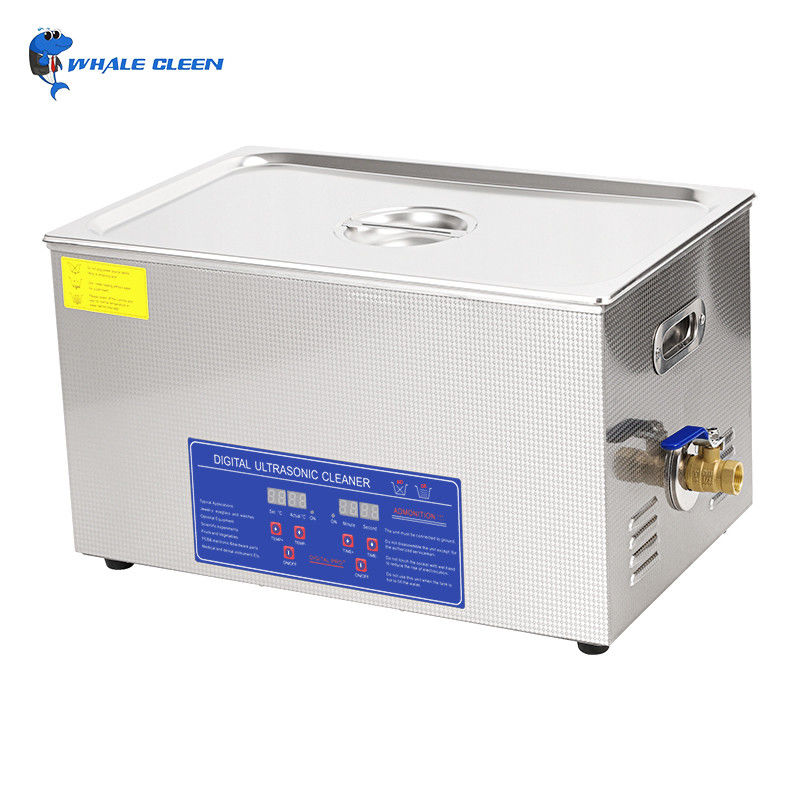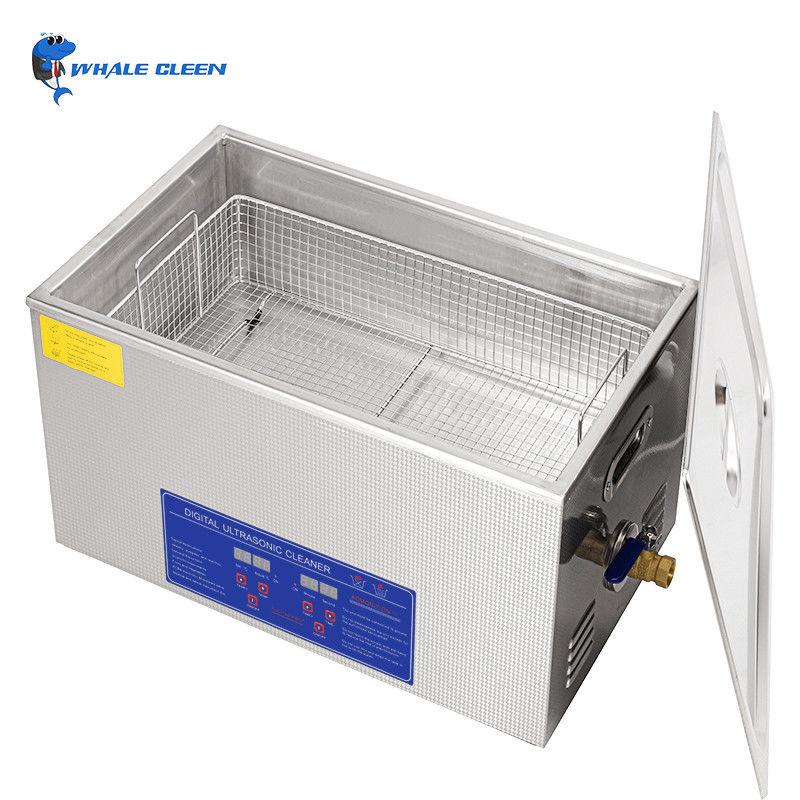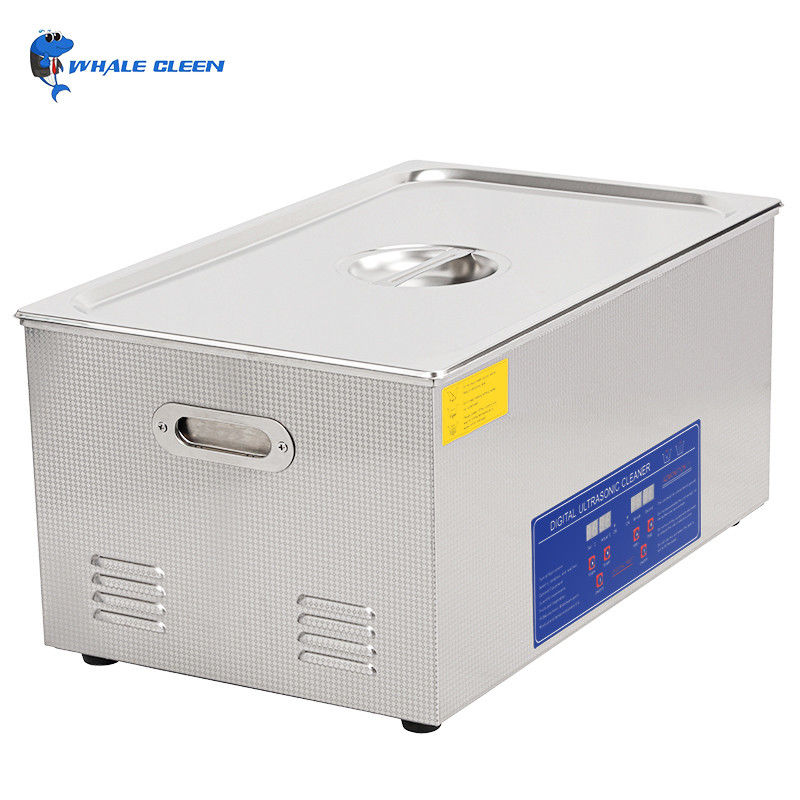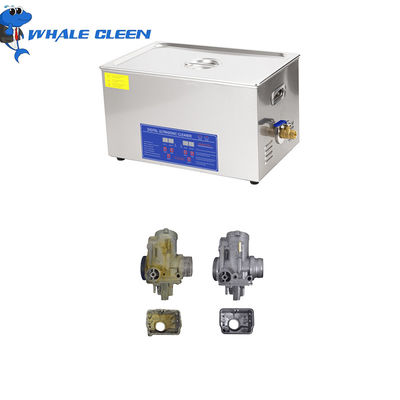
22 Liter Ultrasonic Carb Cleaner Digital Control 1-30minutes Timer
-
Highlight
22 Liter Ultrasonic Carb Cleaner
,Digital Control Ultrasonic Carb Cleaner
,Carb 22L Ultrasonic Cleaner
-
Tank Size50×30×15cm
-
Unit Size53×32.5×28.5cm
-
Pack Size63.5×40.5×34cm
-
Power1.1KW
-
Frequency40KHz
-
VoltageSingle Phases
-
Product NameUltrasonic Carb Cleaner
-
Ultrasonic Power400W
-
Place of OriginChina
-
Brand NameWhale Cleen
-
Certificationce roths
-
Model NumberZ-S08
-
Minimum Order Quantity2 Units
-
PriceNegotiable
-
Packaging DetailsCarton Box Packing
-
Delivery TimeDepend On Quantity
-
Payment TermsT/T
-
Supply Ability20000 Units Per Month
22 Liter Ultrasonic Carb Cleaner Digital Control 1-30minutes Timer
22 Liter 0.6KW Heater Ultrasonic Carb Cleaner With Digital Control
How Does Whale Cleen sonic Ultrasonic Carb Cleaner Work?
An ultrasonic cleaner is used by adding a cleaning solution inside a tank and then placing the components to be cleaned in the solution. Then, the ultrasonic cleaner generates ultrasonic waves into the cleaning solution. The waves separate the cleaning solution's molecules apart causing vacuum cavities. These cavities then implode causing de-cavitation of ultra high energy spots. These de-cavitations act as microscopic scrubbers that clean efficiently. Ultrasonic cleaners can clean these hard to reach areas. Ultrasonic cleaners only remove oil, carbon, varnish and dirt. O-rings, seals and plastic components can be left in place. Having an ultrasonic cleaner that has the ability to heat the solution has a huge advantage as well. It is very similar to a dish washer, which uses heat and water to remove food particles from utensils.
Specification:
| Model | z-s08 |
| Ultrasonic Frequency | 40,000 Hz |
| Tank Material | SUS304 |
| Tank Capacity | 22 L |
| Timer | 1-30minutes ,Digital timer |
| Power Supply | AC 100 ~ 120V, 50 / 60Hz AC 220 ~ 240V, 50 / 60 Hz |
| Ultrasonic Power | 400W |
| Heating Power | 600 W , Digital Heating |
| Unit Size | 530×325×285 mm ( L x W x H ) |
| Tank Size | 500×300×150 mm ( L x W x H ) |
| Package Size | 635×405×340 mm ( L x W x H ) |
| N.W. | 12.1 kg |
| G.W. |
13.7 kg |
Cleaning Feedback:
![]()
Advantages of Ultrasonic Cleaning:
•Able to clean delicate parts without damage
•Able to clean small apertures, blind holes, and crevices
•Able to clean sensitive parts (wiring, plastics) with relatively mild chemistries •Does not require line-of-sight for effective cleaning
Other Advantage:
The most basic piece of equipment for ultrasonic cleaning is a stainless steel tank with an ultrasonic transducer and power supply (frequency generator), and is usually referred to as a benchtop unit. More advanced units may include features such as heating, filtration, mechanical agitation, rotating baskets, ultrasonic power controls, oil skimmers, water level controls, and frequency modulators to improve solution degassing. A number of companies supply ultrasonic cleaning equipment, and are listed at the end of this fact sheet. The ultrasonic process is well suited to aqueous cleaners. As such, it provides an environmentally friendly alternative to mineral spirit cleaners and chlorinated hydrocarbons. Aqueous cleaners are also safer for workers by eliminating flammable solvents and the health risks associated with chlorinated hydrocarbons. Some of the more aggressive aqueous chemistries used in ultrasonic cleaning equipment are either strongly acidic or strongly basic, which have their own health risks. There are many very good neutral pH or near neutral pH chemistries that do an excellent job of cleaning greasy and dirty parts. From an environmental perspective, it is preferable to avoid chemistries that contain metal chelating agents because of the difficulty in treating the wastewater to remove the metals.

